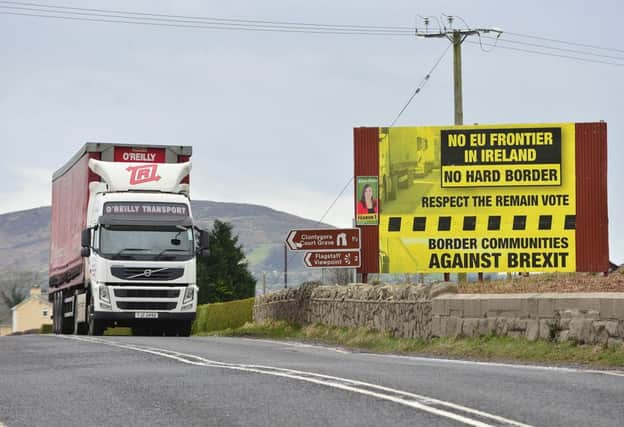The EU remains our nearest and best market


That is because of the close links with their counterparts south of the border, and the focus in the Brexit debate on what will happen about the border. That is the stuff of mainstream politics, but there is no escape from the reality leaving the EU with no deal in place – the so-called hard Brexit – would be a major financial challenge for farmers here and in the Republic.
That is why what is happening is too serious to be left to politicians. As we get closer to the crucial October EU heads of state summit, where decisions about a Brexit deal need to be taken, farmers and others need to make clear to politicians in London and Brussels that the economic damage from a hard Brexit is unacceptable. Whether people voted leave or remain back in June 2016, few believed then we would leave with no trade deal and no access to the EU-27 without paying huge tariffs. This is however a situation that applies both ways. Brussels does not seem to get the message that a hard Brexit could be worse for European than UK agriculture. Indeed it could be worse for the entire EU-27 economy, which is why it is incomprehensible that Brussels is allowing principle to stand in the way of common sense.
Advertisement
Advertisement
Research has shown that in the event of a no deal Brexit the UK and EU-27 economies would both see a big drop in growth rates. Based on these reports the member state that stands to lose most would be Ireland, because of its dependence on the UK market. In any league table Irish farming and food would be the hardest hit by a Brexit without a trade deal. The UK is Ireland’s biggest and best food export market, and Irish businesses have a big presence in that market. They could alter production to protect themselves, but farmers would not have that luxury, and would feel the full impact of World Trade Organisation tariffs to access the UK. If this happens the Irish border would have to be a physical one to ensure tariffs, in both directions, are paid.
The same threat applies to other EU-27 agrifood industries with a big presence in the UK market. These include Netherlands, Germany, France, Denmark and Poland. It is incredible that they and other industries are allowing themselves to be sleepwalked into a hard Brexit. This is down to the intransigence of the European Commission, made worse by the eurosceptic wing of the Conservative party limiting the government’s room for manoeuvre.
The bottom line remains that on food the UK is less than two-thirds self sufficient, and a much bigger buyer from the EU-27 than it is an exporter. It also has a negative balance of trade of about £30 billion a year with the EU-27.
It is hard to believe that those member state governments will allow the European Commission to tie their negotiating hands to disadvantage their national economies. If politicians cannot see this they do not deserve to be in power. If the block to a deal is the European Commission, and its federalist aspirations for the EU, it needs to be bypassed before a generation in both the EU-27 and the UK pay a heavy economic price for poor decision making.
Advertisement
Advertisement
For farmers here the EU will remain our nearest and best market; it is attractive because it is based around the European family farming model and has high standards in both food and the environment. That is the type of market we want to be in, rather than the fantasy of new deals with countries that are big exporters of food.
The irony is that farmers in the EU-27 can say exactly the same about the UK. A trade deal would benefit agriculture here and in the EU-27; a trade war would have the opposite effect. That is why farmers cannot allow their future livelihood to be decided by bickering politicians.
If the EU-27 sticks to the myth that it can do without the UK more than the UK can do without it, that will be economically disastrous for both. It would be the ultimate proof of the old adage that an eye for an eye can only leave everyone blind.